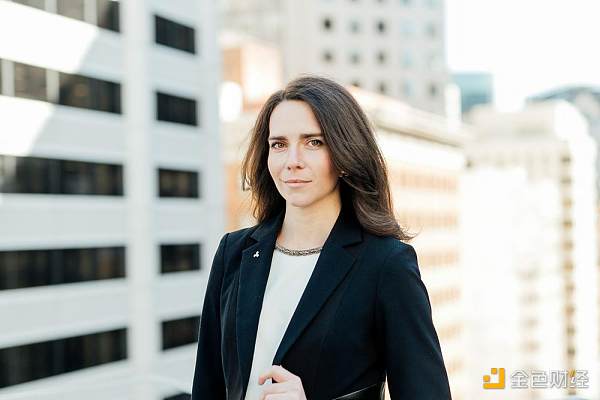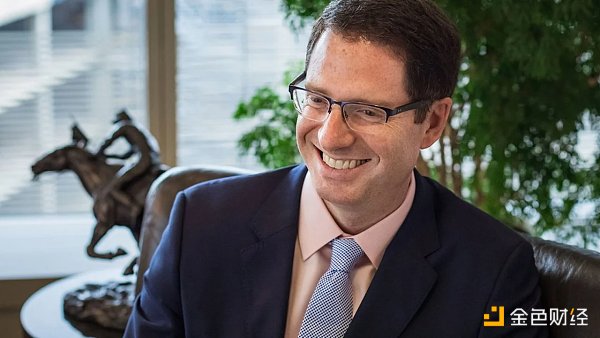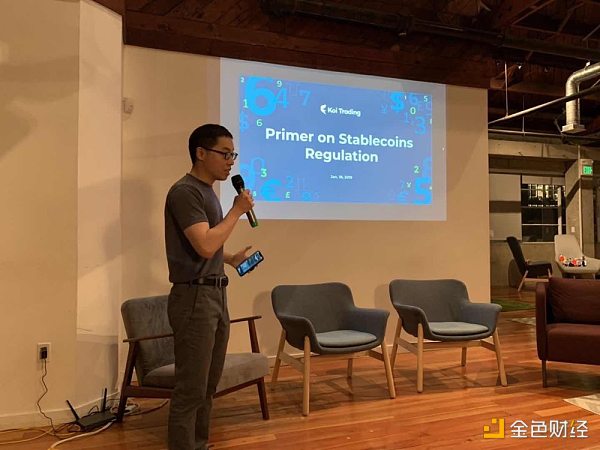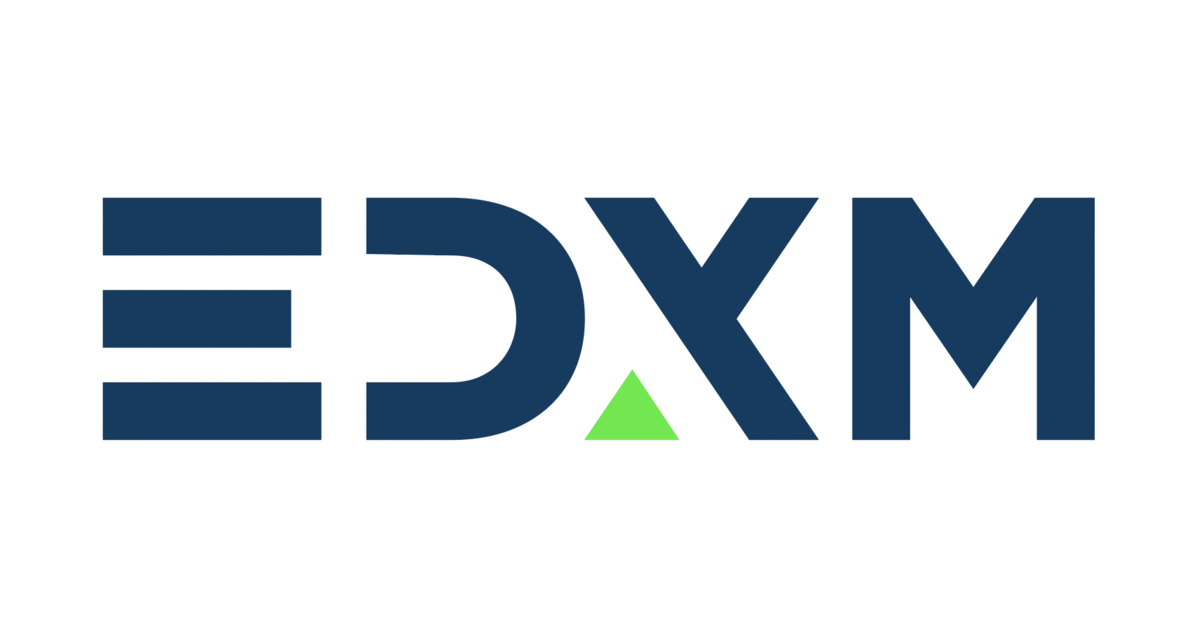Who are the internal “leakers” behind Binance’s multiple regulatory accusations?
Who leaked regulatory accusations against Binance?Author: Nancy, BlockingNews
Despite the recent panic caused by the US Securities and Exchange Commission (SEC) filing a lawsuit against Binance and CEO Zhao Changpeng, the case entering into mediation could mean a greater chance of a settlement being reached. Binance has faced regulatory pressure from multiple US agencies in recent years, with much of the “evidence” coming from internal executives and related personnel. In this article, BlockingNews will take stock of the “leakers” behind Binance’s regulatory scrutiny.
Catherine Coley

Catherine Coley was the first CEO of Binance.US, serving from 2019 to 2021. Prior to this, Catherine Coley had no CEO experience, and LinkedIn shows that she served as the XRP institutional liquidity head at Ripple and worked for banking giant Morgan Stanley in institutional forex markets in Hong Kong and London, as well as serving as a forex consultant at Silicon Valley Bank.
- Gary Gensler’s Crypto Game: Stealing the Spotlight from Congress to Illuminate the SEC’s Path
- Understanding the Distributed AI Computing Network Gensyn
- Office of the New York Attorney General Provides Tether-Related Documents in Response to CoinDesk
Catherine Coley is one of the few young female leaders in large cryptocurrency exchanges and was featured on Forbes’ 40 Under 40 list in 2020. In May 2021, Catherine Coley left Binance.US, and neither she nor Binance officials mentioned the reason for her departure. After leaving, she disappeared from public view and stopped updating her tweets, even though she had previously posted thousands of tweets praising cryptocurrency technology and was very active. Currently, Catherine Coley’s LinkedIn has not been updated, and her position is still described as “Former CEO of Binance.US.” According to The Block’s earlier report, sources said that CZ had hoped Coley would stay at Binance after hiring Brian Brooks (the next CEO), but she no longer wished to stay, and the shrewd Brian Brooks did not encourage her to do so.
According to Catherine Coley’s testimony provided to the SEC in January 2022, it mainly involves the relationship between Binance and Binance.US. The lawsuit documents show that Zhao Changpeng was involved in Catherine Coley’s recruitment, but she quickly became disappointed with the lack of independence of Binance.US after joining. She said that Binance and Binance.US may not be completely independent because there are four service agreements between the two companies, including the main service agreement, wallet custody agreement, software license agreement, and trademark agreement. In particular, the wallet agreement, “I want the wallet and custody agreement to at least involve the United States so that we can control the custody of the tokens. I want the ability to store data and interact with raw data in real time.”
In addition to the 2022 testimony, the SEC also cited Coley’s internal communications in the lawsuit, including her mention of Binance.US’s “1776 Plan” efforts for more independence and evidence of false trades.
In March of this year, Catherine Coley hired former CFTC prosecutor James McDonald as her lawyer to respond to the US government’s investigation of Binance.
Brian Brooks

Brian Brooks became CEO of Binance.US in May 2021, but left the company after only four months due to “differences in strategic direction.” At this time, Binance.US’s plan to raise $100 million and go public also fell through due to regulation. Prior to this, Brian Brooks served as Coinbase’s Chief Compliance Officer and later served as Acting Comptroller of the Currency for several months after Trump’s defeat, strongly supporting cryptocurrencies during his tenure. He is now the CEO of the crypto mining company Bitfury.
In the SEC’s testimony, Brian Brooks also disclosed the reason for his rapid departure, saying, “I realized that I wasn’t actually running the company (Binance.US), and I didn’t think the task I was entrusted with when I signed on was the actual task, so I resigned.”
At the same time, Brian Brook also disclosed to the SEC that Binance.US has a team of about 50 engineers in Shanghai, which operates under an entity called “Boran” and some of which are paid in BNB (Binance platform currency), which is actually the unit of Binance.US in China. Binance.US received an initial funding of $10 million from CZ when it was launched, and the existence of this funding is a “problem.” In addition, he also pointed out that Binance.US uses an authorized matching engine and does not directly control the platform through technology.
Samuel Lin and Alvin
Samuel Lin was the former compliance officer of Binance, and Alvin was the former business development officer. The SEC’s lawsuit includes multiple internal conversations between the two, and from this “evidence,” it appears that Samuel Lin was not “actively” leaking information, but rather having a casual conversation between two friends. According to Linkedin, Alvin Kan joined Binance as a data analysis manager in June 2021, was promoted to ecosystem growth manager six months later, and officially left in April 2023.
In multiple screenshots, Samuel Lin expressed that BNB’s strategy is to stay alive for more than two years and then leave, its price may drop to zero at any time, and he advised Alvin to sell half of his company’s BNB rewards for USDT, and holding 100% of BNB is foolish. He also believed that Binance.US is operating an unlicensed securities exchange in the United States, with a risk-return imbalance. At the time, CFO Wei Zhou requested that he serve as CCO (Chief Compliance Officer) and handle signing matters, but he declined. If he were CCO, signing compliance matters with OFAC (Office of Foreign Assets Control) would make him uncomfortable. In addition, Samuel Lin also said that Binance could not be clean, no possible evidence could be found, and CZ even taught employees how to circumvent procedures.
Meanwhile, Alvin said in the conversation that the price of BNB may drop very low, even lower than HUOBI, and holding BNB is quite brave. At the same time, Alvin said that Binance’s compliance situation is like the Titanic, sinking gradually.
In response to this, Zhao Changpeng also responded in an internal letter to Binance that Binance will not check employees’ chat records, but if they are dissatisfied with their work at Binance (or any company), they should talk to their managers and seriously consider their career choices. Don’t waste energy and life on things you don’t like, because you won’t do well. He also bluntly stated that the SEC’s use of employee chat as evidence is “ridiculous.”
Harry Zhou

Harry Zhou is a serial entrepreneur who graduated from Harvard Law School and the Dickinson College Department of Economics and Computer Science and has worked at a law firm. He has conducted in-depth research on the application of anti-money laundering and anti-terrorism financing laws and regulations in the digital currency field. At the same time, Harry Zhou is also the co-founder of the US OTC trading platform Koi Trading, which has received a $3 million investment from Binance’s venture capital department.
In 2022, Forbes wrote that Binance internally used the “Tai Chi” plan to carefully plan how to evade local compliance and regulatory policies in the United States. The document includes goals, proposed company structures, participation in regulatory plans, and long-term licensing plans. It was coordinated by former Binance employee Harry Zhou to minimize the impact of US regulatory agencies such as the SEC, CFTC, and NYDFS, and even proposed that Binance join the US Department of Homeland Security (DHS) cornerstone plan to discover regulatory weaknesses. Binance denies the allegations in this document and claims that Harry Zhou has never worked at Binance. According to BlockingNews, Harry Zhou did not work at Binance, but claimed to be familiar with US regulation, so he provided related consulting services to Binance and other exchanges. In this year’s SEC lawsuit against Binance, the “Tai Chi” plan was mentioned again and became evidence of Binance’s evasion of US regulation.
Meanwhile, in March of this year, according to the Wall Street Journal, former head of Binance’s venture capital department Ella Zhang and Harry Zhou met with current SEC Chairman Gary Gensler at a meeting in October 2018. Harry Zhou wrote in a chat message at the time, “I noticed that although Gensler refused to serve as an advisor, he was very generous in sharing regulatory strategies.” However, lawyers from Binance’s two law firms, Gibson Dunn and Latham & Watkins, claim that Gary Gensler had offered to serve as an advisor to Binance’s parent company in 2019.
Overall, these “witnesses” are key figures in the various allegations against Binance, but most have not been able to provide overwhelming evidence, and many of the allegations are clearly based on personal subjective analysis and conjectural language.
We will continue to update Blocking; if you have any questions or suggestions, please contact us!
Was this article helpful?
93 out of 132 found this helpful
Related articles
- How should investors hedge their risks during the “storm” of encryption?
- Uniswap v4: What’s Next for the Top DEX?
- Evening Reading | USDT Faces Serious Selling Pressure: Are Market Makers Exiting?
- Is USDT facing severe selling pressure due to market makers exiting?
- How can the development path centered around application chains avoid the pitfalls of Polkadot and Cosmos?
- How can we participate in interactions now that the re-collateralization agreement EigenLayer has officially launched on the mainnet?
- How can Prisma, who calls themselves “LST Endgame,” create a growth flywheel?






